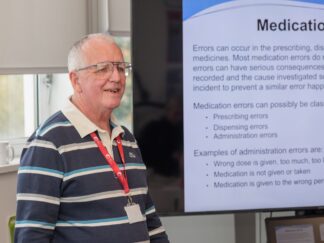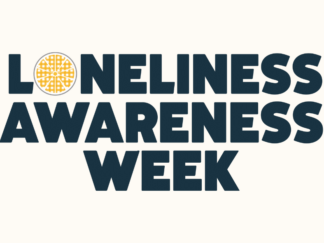
As we grow older, staying connected to others becomes just as vital to our health as good nutrition, medication, or mobility. While medical support plays a critical role in later life, emotional wellbeing and social connection are equally important. At MerseyCare Julie Ann, we believe that companionship care is one of the most valuable forms of support we can offer.
In this article, MerseyCare Julie Ann explores why companionship matters so much in later life, the benefits it brings, and how our care services are tailored to support both physical and emotional health. Whether you’re seeking daily company, meaningful conversations, or help attending social activities, our dedicated team is here to help.
What Is Companionship Care?
Companionship care is a type of non-medical home care that focuses on improving the quality of life for older adults by providing social interaction, emotional support, and help with everyday activities.
This can include:
- Chatting over a cup of tea
- Playing board games or completing puzzles
- Attending community events
- Going for walks or outings
- Help with hobbies like gardening or crafting
- Light household tasks or meal preparation
Unlike personal or medical care, companionship care is primarily about building a trusted, meaningful relationship that combats loneliness and encourages mental wellbeing.
Learn more about our companionship care services.
Why Is Companionship Important for Older Adults?
1. Combatting Loneliness and Isolation
According to Age UK, more than 1.4 million older people in the UK report feeling often or always lonely. Loneliness is not just unpleasant, it’s been linked to serious health risks, including depression, cognitive decline, and even early mortality.
Companionship care provides regular, friendly interaction that uplifts mood, builds confidence, and helps older adults feel connected and valued.
2. Supporting Mental Health and Cognitive Function
Engaging conversations, light activities, and being out and about all stimulate the brain which can help slow cognitive decline and reduce the risk of conditions like dementia. Emotional support also plays a key role in preventing depression and anxiety, especially after bereavement or major life changes.
3. Promoting Independence and Purpose
Many older adults want to live independently but benefit from gentle, regular support. Having someone to visit for companionship can increase motivation to take care of themselves, stay active, and maintain their daily routines.
Our care teams encourage clients to pursue their interests, attend community events, and enjoy a routine that supports their wellbeing.
Companionship Care as a Respite for Families
If you’re a family member or informal carer, you may already understand the demands of supporting a loved one, especially if they live alone or have experienced recent loss or illness.
Our companionship care and respite care services give families peace of mind, knowing that their loved one is safe, supported, and enjoying regular company.
Whether you need help a few hours a week or daily support, we offer flexible, reliable services to give family carers time to rest and recharge.
What Makes Our Companionship Care Unique?
At MerseyCare Julie Ann, we understand that every person is different. That’s why we create personalised care plans based on the individual’s preferences, lifestyle, and routines.
What you can expect:
- A regular, trusted carer who builds rapport and familiarity
- Support with getting out and about (shopping, appointments, or day trips)
- Culturally sensitive and language-appropriate care (where possible)
- Flexibility to scale support up or down as needed
Our carers aren’t just trained, they are selected for their kindness, empathy, and dedication to the people they support.
Looking for companionship care in your area? Contact our team to arrange a home assessment.
Real-Life Benefits of Companionship Care
Here are just a few stories from service users and families we’ve supported:
“I would like to draw your attention to an outstanding carer. She is brilliant her name is Ellie Vanderlaan. Ellie has skill, empathy and pure humanity in the way she does her job. She is very thorough, nothing is too much trouble for her. When I have been cared for by Ellie, my very precious dignity has been restored.
That is the highest skill a carer can have, in my opinion, and Ellie has it buckets full.
I would like Ellie to be given recognition for her massive contribution to human dignity. Particularly my dignity. I have gone from total despair in my life to my life having a meaning again. I attribute that feeling to Ellie and her beautiful humanity.”
– Service user
– Family member of service user
How to Arrange Companionship Care
We make it easy to get started with support at home. Our local teams offer free, no-obligation consultations to understand your needs and match you with the right carer.
Simply:
- Call or email your local branch
- Arrange a FREE home visit at a time that suits you
- We’ll create a personalised care plan and introduce your companion
Further Reading:
Further information
To keep up to date with us, please visit our ‘News’ page here.
Social Media
Our partners





























